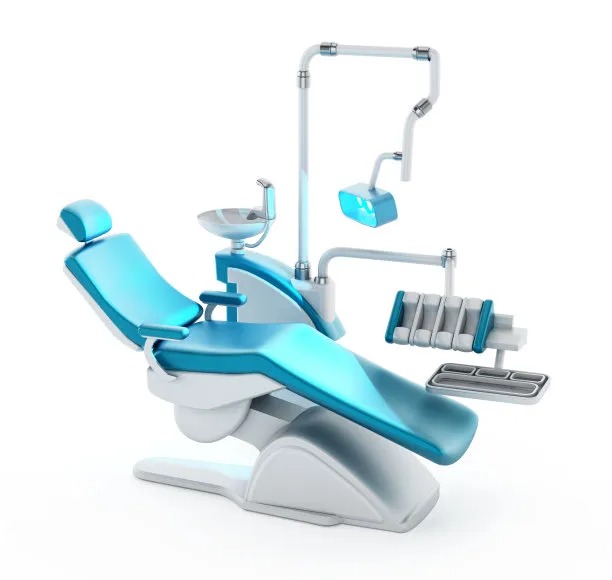Summary: Dental filling procedures are a common treatment for cavities or other forms of tooth decay. However, to ensure optimal oral health and recovery, specific guidelines and precautions should be observed before undergoing these procedures. This article outlines essential aspects to consider, including pre-appointment preparations, understanding the types of fillings available, potential post-treatment care, and recognizing signs of complications. Each section provides detailed insights to help patients make informed choices, thereby promoting a smoother dental experience and long-lasting oral health.
1. Pre-Appointment Preparations and Considerations

Before undergoing a dental filling procedure, it is crucial to prepare adequately to ensure a smooth experience. First and foremost, maintaining oral hygiene in the days leading up to the appointment can significantly impact the effectiveness of the treatment. Regular brushing and flossing help reduce bacteria and plaque, creating a healthier environment that can facilitate the filling process.
Another essential step is to communicate any medical history to your dentist, including current medications and pre-existing health conditions. Certain conditions may influence the type of anesthetic used or the materials for the fillings. By providing this information, patients can ensure a more tailored approach to their needs, minimizing risks and enhancing safety.
Lastly, consider consuming a light meal before the appointment, especially if local anesthesia will be used. Avoiding heavy or hard foods can reduce discomfort and help maintain focus during the procedure. Being well-prepared mentally and physically can contribute to a more successful dental visit.
2. Understanding the Types of Fillings Available
Dental fillings come in various materials, each with its own advantages and disadvantages. Understanding these options can help patients make informed decisions. For instance, amalgam fillings are known for their durability and cost-effectiveness but may not appeal aesthetically. They are ideal for back teeth where the pressure from chewing is greatest.
Composite fillings, on the other hand, offer a more natural appearance and can be colored to match the surrounding teeth. They are popular for front teeth but may wear out faster compared to amalgam fillings. Discussing these options with your dentist can lead to a better understanding of which material aligns with your lifestyle and dental health goals.
Moreover, some newer materials, such as glass ionomer and resin ionomer fillings, release fluoride, which can provide additional protection against decay. By exploring these choices, patients can select a filling type that not only addresses their immediate needs but also contributes to long-term oral health.
3. Post-Treatment Care and Recovery Tips
After a dental filling, adhering to specific post-treatment care is essential for optimal recovery. Initially, patients should avoid eating for at least two hours post-procedure, especially if local anesthesia was administered. This precaution prevents accidental biting of the cheek or tongue, which can lead to further complications.
Additionally, it is essential to monitor any residual numbness and be cautious when resuming regular activities. Mild discomfort or sensitivity to hot and cold is common and generally subsides within a few days. Over-the-counter pain relief medication can help manage any discomfort, but patients should consult their dentist if the pain persists.
Maintaining excellent oral hygiene following the filling procedure cannot be overstated. Continue with regular brushing and flossing routines to protect the newly filled area. A follow-up appointment may also be scheduled to ensure the filling is settling well, providing an opportunity to address any concerns that arise during the recovery phase.
4. Recognizing Signs of Complications Early
Awareness of potential complications after receiving dental fillings is crucial for ongoing oral health. It is vital to recognize signs that a filling may be problematic, such as increased pain, persistent sensitivity, or visible cracks. If any of these symptoms occur, reaching out to the dentist promptly can prevent further damage and address issues before they escalate.
In some cases, a filling may become loose or fall out. This can result from deterioration over time or excessive pressure on the filling. If this happens, patients should avoid using the affected tooth and seek immediate dental care to replace or repair the filling. Prompt action in such scenarios is vital to restore function and protect the underlying tooth.
Lastly, regular dental check-ups are indispensable in monitoring the condition of fillings and overall oral health. Dentists can offer professional insights on the performance of fillings and make necessary adjustments or treatments as needed. This proactive approach can help maintain a healthy mouth and can prevent complications down the road.
Summary:
In conclusion, preparing for dental filling procedures involves a comprehensive approach that encompasses pre-appointment preparations, understanding filling materials, post-treatment care, and recognizing potential complications. By adhering to these essential guidelines and precautions, patients can enjoy an efficient dental treatment experience followed by optimal recovery and long-lasting oral health.
This article is compiled by Vickong Dental and the content is for reference only.
Vickong Dental
Vickong Dental is a large medical group established in Hong Kong in 2008 by professors from well-known medical universities in Guangdong and Hong Kong, as well as medical doctors from key national '985' universities (including Master's supervisors and senior professors). The chain of branches brings together expert dentists with PhDs and Master's degrees from Hong Kong and Mainland China, committed to providing high-quality dental treatment.
"Vickong Dental Practices the University Motto of 'Healing and Serving Society,' with a Stable Operation for Sixteen Years. It Has Been honored with Hong Kong Enterprise Leaders's Choice,' and is a Global Trusted Implant Center for the Nobel Implant System. Recommended by Hong Kong Metro Broadcast and Guangdong Television, it Serves Customers from Over Thirty Countries and Regions, Gaining the Trust and Favor of Citizens from the Guangdong-Hong Kong-Macau Greater Bay Area and Surrounding Cities.

Thousands of customers' unanimous praise
The most recognized and highly recommended dental service by customers in the Guangdong-Hong Kong-Macau Greater Bay Area
We Ensure You Receive Detailed Care and Attention Here
Hong Kong standards, Shenzhen prices, Your Trusted English-speaking dentists

Vickong Dental Medical-Grade Instrument Disinfection Process
Vickong Dental Medical-Grade Instrument Disinfection Process

Vickong Dental Chain: A Warm and Comfortable Environment for Treatment






Appointment Hours

Q&A
Why choose Vickong Dental?
Vickong Dental practices the university motto 「Medicine to Benefit Society」, with each branch bringing together highly qualified dentists with doctoral and master’s degrees from Hong Kong and the Mainland, and has maintained seventeen years of steady operation。Recipient of 「2024 Hong Kong Enterprise Leaders Brand」, 「2025 Hong Kong Enterprise Leaders Brand」, a Nobel Biocare Global Trusted Implant Center, and a brand recommended by Metro Radio Hong Kong and Guangdong TV。
To date, we have served customers from more than thirty countries and regions,earning exceptionally high word-of-mouth recognition and trusted recommendations from residents across the Guangdong-Hong Kong-Macao Greater Bay Area and surrounding cities
We have eight major branches in Zhuhai、Shenzhen,and a consultation and service assurance center in Hong Kong,so you can book a free consultation at any time for any questions,which is very reassuring.
If I do not accept the quotation after the CT scan, will I be charged??
No! As long as the actual treatment has not started, you will not be charged any fees.
Will there be any additional charges during the treatment process?
No, there won’t be any additional charges. Before treatment begins, we will clearly explain the treatment plan and its corresponding fees. Only after the patient agrees and signs the consent form will we proceed with the dental service.
Can I pay in Hong Kong dollars?
Yes. Vickong Dental accepts payment in Hong Kong dollars. The amount will be converted based on the exchange rate of the day, and the applicable rate will be clearly communicated to you in advance.
Can I reschedule my appointment at any time?
Yes. Please contact us via **WeChat** or **WhatsApp** as early as possible, providing your original appointment time and details, along with your preferred new date and time slot for rescheduling.













